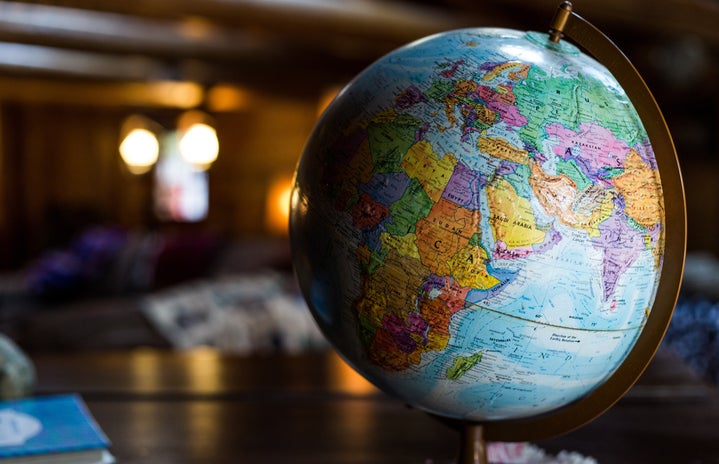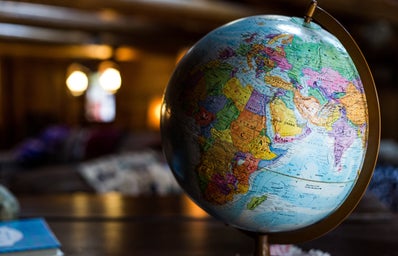Almost everyone at ICU is bilingual, speaking Japanese and English, and many more speak even a third or a fourth language. I believe that the languages we speak play a huge role in the construction of our identity. Not only do speaking languages allow us to connect better to our parents, families and our home countries, but languages are also the barriers between different nations and cultures. When we pick up a second language, we are essentially breaking that barrier and allowing for two cultures to integrate with one another.
I am currently fluent in Hindi, my mother tongue, English and Japanese and can read Korean and understand around 40% of it. My Korean skills are still very lacking, and therefore I do not consider myself fluent in it.
Of course, when you study at a school like ICU where almost everyone speaks and understands two languages, this is not surprising. However when I tell a normal native Japanese about my language skills, or even my family back home in India, they are mostly shocked at my ability to speak more than two languages. It almost makes me feel extremely valuable.
I have been speaking Hindi ever since I first began to learn how to speak. My parents speak in Hindi at home, my family in India speaks Hindi, we watch Indian television in Hindi and so it was just natural for me to speak Hindi as well. Hindi is actually a difficult language. We have about 48 alphabets and writing Hindi is a whole different struggle, but my parents made sure I learnt how to read and write Hindi. Granted, I am not as good at it as an Indian who grew up in India, but its good enough for me.
I learnt Japanese when I started going to Japanese public pre-school, picking it up almost immediately since it was all I heard around me during the day. My teachers at the time could only speak Japanese and so could my pre-school friends. Japanese slowly started to become a comfortable language to me and since I was so young, I hardly realized I was speaking a second language. In fact I’ve become so comfortable with it that I talk to myself in Japanese when I’m all alone.
Now some seventeen years after I first went to pre-school, I can speak three languages with a semi learnt fourth one. Speaking three languages seems all cool until it starts messing with your brain until you start questioning your own existence.
Confused?
Let me explain.
I mentioned earlier that my mother tongue is Hindi, however due to my upbringing in Japan, I can hardly speak a sentence without inserting a Japanese word in it. I often buffer and halt whenever I’m talking to my parents and I need to correct myself before speaking. Not to mention that it is practically next to impossible for me to speak a sentence in Hindi without including any English words in it. And let me tell you, speaking in pure Hindi is hard.
Very, very hard.
I can’t even count the amount of times I’ve confused my languages and spoken a wrong language to a wrong person. For example, when I was in high school, my classmate asked me a question related to our homework and I answered her back in Hindi. I had been meaning to say yes in Japanese but I ended up doing in Hindi, making both me and her confused. Luckily she laughed it off otherwise that would have been an awkward conversation. Another time is whenever I talk to my grandparents on the phone and sometimes I want to say something in Japanese, but I can’t, and then I have search my brain for another substitute word in Hindi, and that takes time.
One more classic example I have of my struggles as a bilingual is regard the word 「ごみ」. 「ごみ」is the Japanese word for the term “trash”, and it is a very common word used in our daily lives. I have been using ごみ to refer to trash all my life and since my parents also say ごみ instead of trash, I as a child naturally assumed it was a Hindi word. I had thought my entire life was a lie when I found out that ごみ is in fact a Japanese word. My family uses the word ごみ so often that even my grandparents in India now know what it means.
And of course, I can’t rule out the days where I can’t speak a certain language. I am sure all trilinguals and multilingual can relate to me when I say that certain days aren’t for certain languages. There are days where I quite literally struggle with speaking English or Japanese and make numerous errors speaking it. Just the other I was helping difficulty ordering at Starbucks, something that is second nature to me, because I couldn’t get my brain to function in Japanese for the moment. There are other days that I am so mentally exhausted that my brain decides to skip over words when I speak English, and trust me when I say it gets embarrassing in breakout rooms.
I am sure you get the gist of it, but the life of a trilingual is filled with mental jumbles and verbal struggles. One moment you think you are speaking one language and the next moment you’re automatically switching to another language. We also end up developing weird speaking habits and behaviors and I am sure I speak for many when I say that our mother tongues in reality are two language mashed up together. For example, I find speaking Jinglish (the combination of Japanese and English) so much easier than speaking English or Japanese only.
But at the end of the day, being a trilingual is what enables us to break down the barriers between our nations and cultures and sets us different within our ever growing society.


